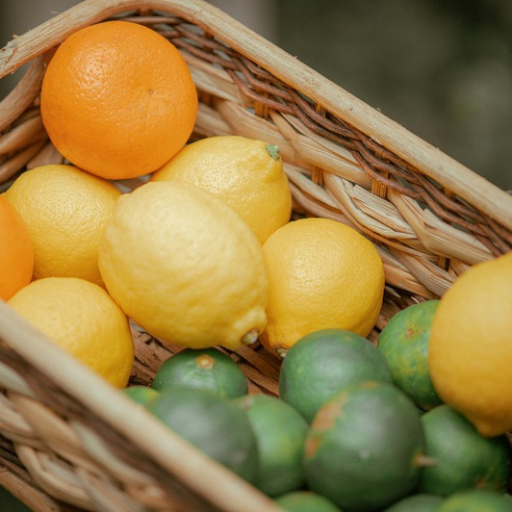Citrus trees like lemon, lime, and orange enrich our gardens with their vibrant fruit and aromatic presence. For these trees to thrive and yield bountiful harvests, they require the right nutrients. This blog aims to guide you on the best organic fertilizers available for citrus trees, ensuring they get the nutrition they need in the most natural and sustainable way. From understanding the unique needs of citrus to exploring various organic fertilization options, we’ll cover everything you need to know to boost the health and productivity of your citrus trees. Whether you’re a seasoned gardener or a beginner, this comprehensive guide will provide valuable insights into nurturing your citrus trees organically.
What is the Best Organic Fertilizer for Citrus Trees?
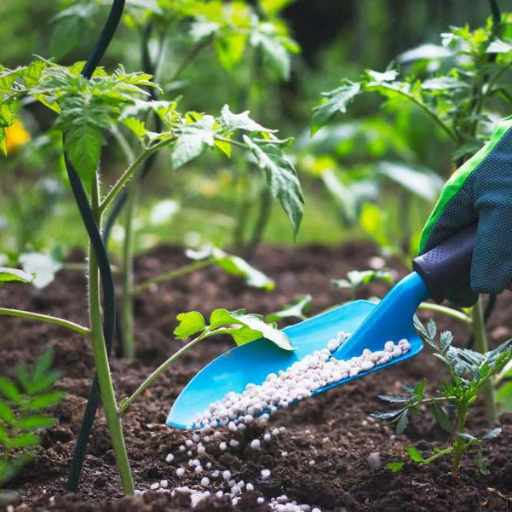
Understanding Components of Organic Citrus Fertilizers
For the best growth and production of fruits, an organic fertilizer should be chosen with the right proportions of main nutrients. Nitrogen (N), phosphorus (P), and potassium (K) are the main macronutrients required by citrus trees. Nitrogen is responsible for succulent leaves; phosphorus aids in root development and flowering while potassium improves overall tree health and fruit quality. Additionally, traces of magnesium, calcium, zinc, manganese, molybdenum and iron are also very essential to avoid nutrient deficiencies. These nutrients are obtained from natural sources such as manure, seaweed meal or liquid seaweed fertilizers among others that organic fertilisers are made up of. When you understand these essential components in fertilizers as well as using them in your selection for citruses it results into a balanced supply of sustainable nourishment to enhance their growth and productivity.
Best Natural Fertilizers for Healthy Fruit Trees
- Compost: This all-natural product is an excellent choice when growing citrus because it contains many important nutrients needed by these plants. Compost improves soil structure, increases fertility levels in soils and helps retain moisture. The recommended method is to apply compost around the base at a depth between 2-3 inches away from the trunk.
- Seaweed Fertilizer: Seaweed has many vital minerals which promote vigor in trees hence helping fruits yield well especially oranges e.g., kelp extract – can be purchased as soluble powder or liquid concentrate that can be administered through drip irrigation system or foliar spray application to crops . Simply follow dilution recommendations on manufacturer’s label before watering your plant(s) nearby when using this type of fertilizer.
- Manure: For example aged manure would make a great option which…contains plenty of nitrogen …as well as other major elements like phosphorous ,and potassium…the ground around where it grows needs proper mixing during early springtime or late autumn thus; it must be properly composted to avoid burnings. Avoid using fresh manure, as this can be too potent and damage the roots of your tree.
Why Citrus Mix 6-3-3 is Ideal for Oranges Citrus Trees
This is a specifically designed fertilizer for orange trees known as Citrus Mix 6-3-3. It has 6% nitrogen, 3% phosphorus, and 3 % potash plus some other minor elements like magnesium, calcium and iron. The content of 6% nitrogen helps in developing foliage that ought to be green always so that photosynthesis can take place since these plants need sunlight energy for their growth among others. Its phosphate (P) value is at 3%, which implies strong root system development that allows good flower and fruiting process characterized by huge yields. Further more Potash (K) is also present at three percent improving size, taste as well as disease resistance on fruits.
Furthermore, it includes components such as seaweed and bone meal of organic nature; they are significant because not only do they offer nutrients but also help promote soil fertility through enhancement of microbial activity in addition to stimulating soil health. To achieve this goal compost-based fertilizing approach ensures both instant effects and long-term benefits hence healthier trees with increased production of rich tasting fruit on them for your back yard orchard.
How Often Should I Fertilize My Citrus Tree?
Seasonal Guidelines for Fertilizing Citrus Trees
It is crucial to have a seasonal fertilizing schedule if you want to maintain the health and productivity of your citrus fruits.
- Early Spring: Start fertilizing immediately you see new growth in early spring. You can use a balanced fertilizer such as Citrus Mix 6-3-3 so that it will get enough nutrients for its growth.
- Late Spring: For late spring, repeat the application process to enhance the current momentum of growth and support flower development.
- Mid-Summer: The tree needs a mid-summer fertilization because fruit development is still on-going at this time. The result of using it is an increase in fruit size and flavor.
- Late Fall: Give the tree its last round of fertilizer in late fall after which, it goes into dormancy period until next year’s growing season begins. This serves as recovery from a growing season and prepares them for another one ahead.
By following these seasonal guidelines consistently, citrus trees receive ample nourishment throughout their lives thus promoting their healthy growth, blossoming abundantly and bearing much fruit every harvest time. Be on the look-out also for over-fertilization signs like leaf burn or stunted growth as you adjust your program according to how they appear each day.
Warning Signs Your Citrus Tree Needs More Nutrients
Knowing when your citrus tree needs more nutrients will enable you to keep it healthy and productive through summer, winter or autumn:
- Yellowing Leaves: One of the main signs that nutrient deficiency occurs within citrus trees is yellowing leaves that are often noticed between the veins; this could be an indication of nitrogen, magnesium or iron deficiency.
- Poor Growth: Stunted height or undersized young leaves means fewer vital nutrients required during their development hence low nutrient levels in soil may result into poor foliage.
- Leaf Drop: If there are many leaves falling off, or they are dropping prematurely, it could be due to a lack of nutrition in the tree. This is usually associated with low potassium or nitrogen levels.
- Discolored Leaf Tips and Edges: Potassium deficiency can lead to burning or browning on the tip and edges of the leaves.
- Reduced Flowering and Fruit Production: Fewer flowers or fruits than normal might be a sign that your citrus tree needs more phosphorus or potassium. In some cases, the fruit may also get stunted, misshapen or drop early.
When you start noticing one of these symptoms in your citrus tree, review your fertilizing schedule accordingly and switch to another fertilizer which is richer in nutrients such as nitrogen, phosphorus, potassium and micronutrients (Micro-nutrients). In case you do not know about what deficiencies your plant has; ensure to carry out a soil test on the field.
How Fertilizer Amounts Should Be Adjusted for Potted Citrus Trees
The adjustment of fertilizer amounts for potted citrus trees should be done appropriately so as to maintain their healthiness and productivity. Unlike those planted straight into the ground, potted citruses feed more on nutrients given by humans who care for them. Here are some short guidelines on how you can adjust fertilizer for potted citrus plants:
- Frequency: Dose fertilizers between one to two months when it’s growing (spring/summer) season whereas during its sleep cycle (autumn / winter), apply every two to three months.
- Type of Fertilizer: For example; balance it with various types like liquid slow release/or balances which contains all those main elements required by trees such as nitrogen phosphors magnesium iron zinc amongst others because they help nutrient supply even after many days.
- Amount: Follow instructions indicated in the package. Usually dissolve water soluble fertilizer in water before sprinkling granular type evenly over soil surface then water, as stipulated in the label or apply any other effective method.
- Monitor the Tree: Making sure to check the leaves and general growth of the tree on a regular basis. In case you see symptoms of nutrient deficiency like yellowing leaves or burned leaf edges, then slightly change the amount.
By modifying these instructions for your potted citrus tree in particular, you will be able to guarantee that it gets a perfect mix of nutrients for its existence.
Which Organic Ingredients are Best for Citrus Fertilizer?
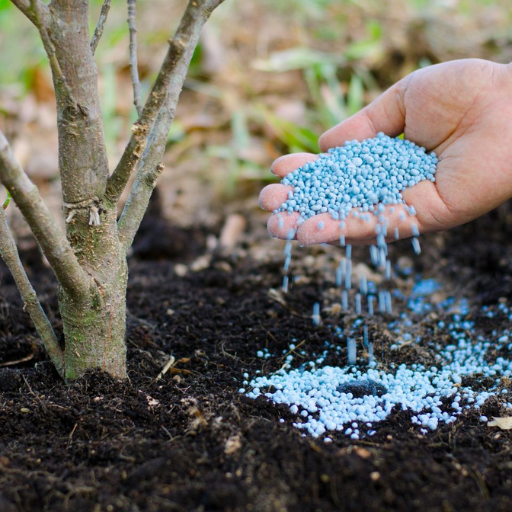
Benefits of Bone Meal, Compost and Kelp
- Bone Meal: An extremely excellent organic fertilizer high in phosphorus that is useful for strong root development and flowering. It also contains calcium that assists in the structural development of plants. The use of bone meal amends nutrient profile of soil; its slow release food is effective over a long time.
- Compost: This is an amazing all-around organic fertilizer that enhances soil structure, increases nutrient status as well as promote healthy activities of microorganism present there. It prevents loss of moisture from soil by increasing water saturation level there as it provides steady supply of essential nutrients like nitrogen, phosphorous and potassium among others. Incorporating compost into your citrus tree’s soil can greatly improve its growth and fruit yield.
- Kelp: Kelp or seaweed is great source of micronutrients vitamins and hormones which stimulate plant growth. It has natural growth regulators that assist plants to withstand stress thereby improving their overall resistance. Rooting, increased production of flowers and fruits followed by better uptake rates for vital elements by the tree are some effects brought about when kelp is used as a supplement.
By using these organic components, you will be able to establish a strong base of nutrients for your potted citrus trees resulting in healthier growth and abundant fruit harvests.
Role of Nitrogen, Phosphorus, and Potassium in Citrus Health
- Nitrogen (N): For citrus growth performance enhancement, nitrogen must be included; it promotes formation chlorophyll which aids photosynthesis to take place. Well balanced amounts lead to healthy green leaves while encouraging vigorous growth in terms branch elongation or leafing out process hence leading to good foliage cover. When insufficient levels occur, these symptoms appear on citrus such as short twigs with thinning leaves finally affecting crop yields through poor fruit set.
- Phosphorus (P): When it comes to root establishment for energy transfer purposes within the plant body complex P cannot be ignored. It is responsible for initiating flowering and fruit setting, thus ensuring citrus trees produce quality fruits. Lack of phosphorus may lead to weak roots in addition to poor flowering and fruit development.
- Potassium (K): Enhances the overall toughness and resistance ability of citrus trees especially during tough environmental conditions. It aids in water & nutrient regulation within plants which is very important in dry moments when hydration has to be maintained. Fruit size, taste, and color are influenced by potassium hence it affects its quality. Small underdeveloped discolored fruits can result from low potassium levels.
Adequate balance of nitrogen, phosphorus and potassium is necessary for good health and productivity of citrus trees; hence their management enables strong growth with well established root systems, abundant blossoms as well as high quality citruses.
Eco-Friendly Organic Fertilizers to Encourage Fruit Production
To care for citrus tree in an eco-friendly manner one may opt for organic fertilizers that will not only ensure sustainability but also contribute to a healthy environment. Some of the best eco-friendly organic fertilizers used to promote fruit production include:
- Compost: Compost provides abundant supply of organic matter plus nutrients necessary for improving soil structure while retaining moisture content there. It releases nutrients into the soil at slow rate such as nitrogen, phosphorous, potassium among others which ensures constant supply available for use by the citrus trees over time.
- Manure: Aged manure from animals like cows, chickens or horses contains lots of essential nutrients such as nitrogen. Consequently it helps boost microbial population inside the soil leading enhanced rhizosphere thereby giving good vegetative growth. This occurs because manure improves both structure and texture making it possible to render various types including clayey soils more suitable sources medium required by plant roots when looking up water/nutrients on top surface area with heavy texture whereas sandy ones which drains quickly, it absorbs moisture and retains it longer in high rainfall years.
- Bone meal: Bone meal is one of the powerful fertilizers for giving strong root development and flowering plants that also contains calcium necessary to maintain good health and resilience of citrus trees thereby improving fruit quality.
These organic manures not only supply essential nutrients but also enhance soil health, support sustainable farming practices and reduce impacts on the environment. Their use produces healthier trees with high yield in fruits.
How Do I Use Organic Fertilizer on Citrus Trees?
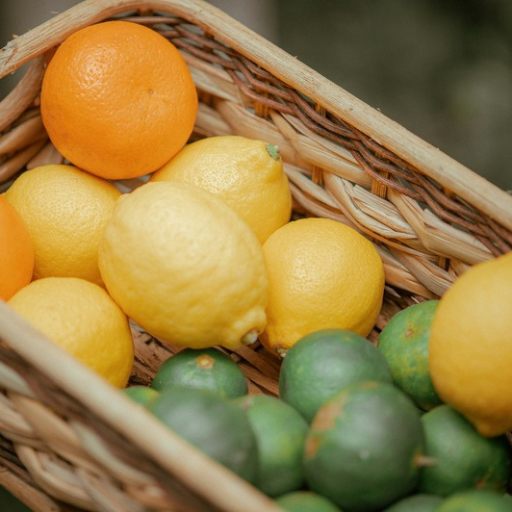
Granulated fertilizers, step by step guide for their application
Choose the best granular organic fertilizer which is specifically made for citrus trees or which has balanced amounts of essential nutrients such as nitrogen, phosphorous and potassium.
- Evaluate how much you need: It is important to determine the amount that your tree requires taking into account its age, size and specific requirements. Check the details on the container with the fertilizer to see what they say about this.
- Put evenly over the drip line: Make sure that you spread granular fertilizer uniformly around the tree’s drip line. The drip line is a circular area on the ground which corresponds to an outer perimeter of canopy. Do not put any fertilizer against a trunk lest there be root burn.
- Work into soil gently: The top few inches of soil should be lightly raked or it could be done with a garden fork so as to enable roots absorb nutrients easily.
- Water adequately: After applying water thoroughly around that spot hence enabling breakdown of granules and easy diffusion of nutrient into rooting zone. Keep in mind that one wants moist soil but not waterlogged soil.
- Apply again when necessary: Reapply the fertilizer following what this product label recommends, usually after 4-6 weeks during growing season. Depending on factors such as growth rate of tree, health status, and condition of soil, adjust frequency accordingly.
Thus by following these steps you can nourish your citrus trees using granulated organic fertilizers effectively ensuring strong growth and good fruit set.
Advantages of Liquid Fertilizer for Tree Fertilizing
When considering tree fertilizing it’s recommended using liquid fertilizers because they have several advantages that improve healthy development of trees. Here are some notable benefits:
- Quick Nutrient Uptake: Essential components like nitrogen, phosphorus and potassium can readily be taken up by trees from liquid fertilizers thus leading to faster growth rates coupled with better overall health conditions within plants cells than solid ones thus leading to faster growth and better health.
- Even Spread: Nutrients in liquid fertilizers can be uniformly distributed throughout the root zone of the tree. This helps to avoid deficiencies in certain parts.
- Easy Application: Liquid fertilizers are simple to use like when applied through a hose with end spray or a watering can. These are timewise and less laborious as opposed to granules where application involves incorporation into the soil.
- Adjustable Concentration: Levels of liquid fertilisers may be adapted to suit different types of trees so this makes it possible for the users to choose from many species at various stages of their development using this option.
- Immediate impact: In liquid forms, nutrition is readily available; hence it results in quicker growth and strength that is needed for nutritionally demanding trees without any delay once they have been absorbed by plant tissues.
These are significant benefits which occur as a result of application of liquid fertilizer thus making trees healthier while growing better
When and How to Use Foliar Plant Food on Citrus Trees
Provided it is employed correctly, foliar plant food can enhance citrus tree health and productivity considerably. It is advisable that foliar plant food should be used early in the morning or late evening when temperatures are lower reducing chances of leaf burning as well as increasing absorption rate. It is best done during growing periods i.e., mid-spring until early fall season.
Before applying foliar plant food, pick a well-balanced fertilizer that is especially made to cater for citrus trees. Observe the correct dilution rate in mixing the fertilizer as per what has been described on the manufacturer’s instructions. Use a sprayer which produces a fine mist to spread it all over leaves including both upper and lower sides of the leaf surface so as to maximize intake of nutrients. It is very necessary to make sure that the solution covers the leaves completely but not running down.
Avoid when it is hot, windy or just before rains since this may affect how efficient the foliar feed works. Besides, take care not to over apply because too much nutrients might lead you to burning off your foliage or causing any other injury. Regularly using foliar plant foods within complete fertilization programs can result in healthier leafage, improved fruit setting and better resistance towards pests and diseases.
Can I Make a Homemade Fertilizer for My Lemon Tree?
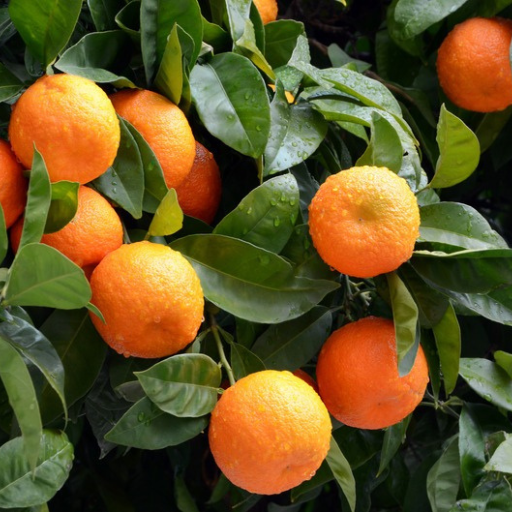
DIY Organic Fertilizers from Kitchen Scraps
Making homemade fertilizer for your lemon tree from kitchen wastes and other remains is very possible. You can do this in an economical way while being friendly to nature by providing important nutrients to your plants at the same time. Banana peels are a simple way of doing it, where you chop them into small pieces and bury around the base of the lemon tree since they are rich in potassium and phosphorus.
Eggshells are also another option which have considerable proportions of calcium that can improve soil structure. Grind eggshells finely to form powder which you will then sprinkle all over the tree. Coffee grounds also serve as good fertilizers that add nitrogen nutrient to soils but one should not use too much ground so as not make acidic soil.
Besides, vegetable scraps and other organic matter can be soaked in water for some days to create compost tea. This liquid needs straining before using it to water your lemon tree and make it have extra nutrients. It is that easy such that these simple kitchen scraps promote healthier growth as well as more abundant fruiting on a lemon tree.
Combining Compost, Worm Castings, and Seaweed
When combined with worm castings and seaweed; compost offers a very effective homemade fertilizer for a lemon tree. I prefer starting with full decomposed compost which furnishes a mix of complete nutrients. In addition, there are beneficial microbes in worm casting as well as added nutrients which aids in improving both plant’s health plus soil quality. Lastly fresh or dried seaweed introduces trace minerals together with hormones that promote overall strength root development among others to my mixture. Thus through blending these three natural fertility enhancers, I ensure my lemon trees get all the necessary nutritions henceforth having strong leaves thus promoting growth thereby producing many fruits.
Safe and Effective Recipes for Homemade Fertilizer
Economically speaking, you may find it rewarding developing your own fertilizer for the lemon tree. Here are some tested and proven recipes that make excellent homemade fertilizers:
- Banana Peel Fertilizer: Cut banana peels into small pieces. Dig a hole around your lemon tree and put the peels of bananas in, the potassium rich bananas will promote fruit development, among other benefits.
- Eggshell Fertilizer: Powder finely crushed eggshells which have been cleaned and dried. Spread this powder over the base of the tree. To enhance soil structure and encourage robust root growth, calcium is present in large quantities within eggshells.
- Coffee Grounds Fertilizer: Around the base of your lemon tree, place gently used coffee grounds that may be rich in nitrogen. Care should be taken not to pour too much since it can cause acidity levels to rise.
- Compost Tea: Take water and soak various vegetable scraps together with other organic matter for several days that you then strain before using as liquid to irrigate your lemon tree; thus providing it with instant nutrient boost.
By using such simple kitchen things, you can nourish your lemon trees better with fertilizer that brings forth more fruits while growing healthier ones than ever before.
Frequently Asked Questions (FAQs)
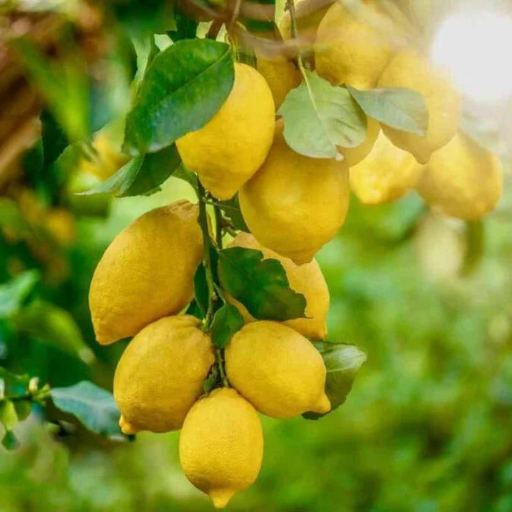
Q: What are the advantages of applying seaweed fertilizer on citrus trees?
A: Seaweed fertilizer gives other micronutrients and enhances soil health which results in a vigorous new growth, and tastier fruits on your citrus trees. It works well for both established and newly planted seedlings.
Q: How do I fertilize my hydroponic citrus trees?
A: Use 2 tablespoons per gallon of water in hydroponic citrus trees with liquid plant food. Look for a fertilizer that has primary and secondary nutrients to give them more leafy new plants.
Q: Can I use ornamental fertilizer on my orange tree?
A: Though we can still make use of ornamental fertilizers, it is however good to go for those meant specifically for fruiting trees. Citrus-specific fertilizers such as Espoma Organic provide precisely what is required by the plants to attain optimal productivity.
Q: Are chemical fertilizers okay for growing lemons?
A: Although, they can be employed it’s better to go for natural organic ones than synthetic fertilizers. That way you feed the plants while avoiding chemicals that may harm the crops thus contributing towards healthier soils plus better tasting fruits.
Q: How often should I apply manure on my lemon tree?
A: Fertilize your lemon tree with an organic fertilizer once every two weeks. This ensures that there is a constant supply of nutrients needed by your plants so that they grow healthy and bear many fruits.
Q: Can mulching help lemon trees?
A: Yes,it assists in maintaining soil moisture under lemon trees while at the same time reducing weed growth as well as adding organic matter into the soil; this complements the application of fertilizers hence promoting overall healthiness of fruiting crops.



